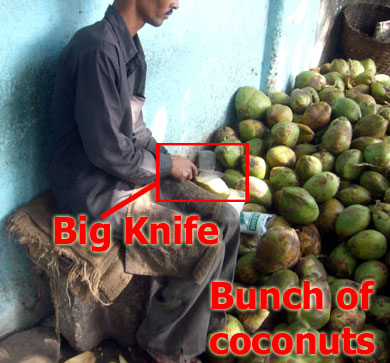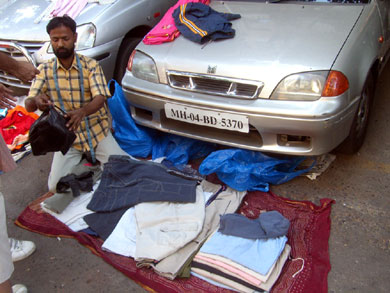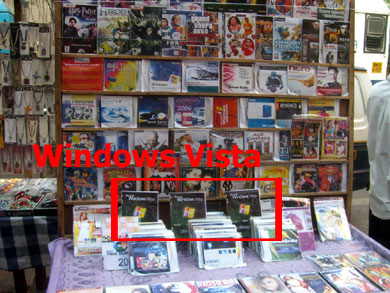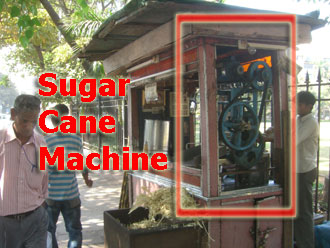 On a recent trip to India I found out that a low-level daily-wage worker will make about 150 rupees per day. This is about $3 in American currency PER DAY for sometimes back-breaking work.
On a recent trip to India I found out that a low-level daily-wage worker will make about 150 rupees per day. This is about $3 in American currency PER DAY for sometimes back-breaking work.
For this reason, it’s very common to see these people setup small micro-businesses which could easily earn them more money…..or the same amount of money but with less work.
These people don’t build Web 2.0 applications, seek venture funding or build their business for the sole purpose of being bought out…..they simply use the basic foundation of business: Buy low, sell higher.
If you haven’t got much money, a big setback to running your own business is getting a license to sell….so a lot of the micro-vendors simply don’t have them. Another way to get around this is by bribing the cops if you get caught (supposing you have enough money).
So lets say you want to make some extra money in India, what to do?
A very common sight is selling some sort of fruit on the road. My favorite is the coconut stand. I LOVE coconuts, and had at least two per day. These are the fresh, green coconuts with delicious water and malay on the inside. No matter how hot it is, the water always feels cold because of the thick husk around it, and the insides of the coconut are scooped out and eaten. The only drawback to the coconut is it’s EXTREMELY difficult to open unless you’ve got the technique…..and a big knife. The process is pretty simple:
1.) You order which kind of coconut you want: Water only / Thin malay / Thick malay.
2.) The guy starts slicing the coconut into a cone shape at the top. Once down to the core of the coconut, he gives it a few hard strikes and pops it open.
3.) He hands it to you with a straw and you stand by the coconut stand until you finish the water.
4.) Once finished with the water, you hand the coconut back and the guy will slice a piece off the coconut and make a little “spoon” to scoop out the malay for you.
5.) Eat malay, pay (usually 10-25 rupees), done.
Most of these guys selling coconuts either just have a big stack of coconuts somewhere along the road, or have a rolling cart which they can easily relocate. A lot of people buy coconuts for a quick refreshment.
Another common way of making a little money is selling a few products in your own little portable store front. This “store front” is basically a suitcase or bundle which you can lay out quickly, and pack up even quicker for when the tax collectors come to check your license.
This vendor was selling just cargo shorts and shirts in a very busy area:
If you’re interested in his wares, he will quickly measure you, give you the right size, haggle out a price and you’re on your way. What this guy does is find a high traffic area and plops down his shop. If the tax collectors come by to check his license….he’s gone before they even know he’s there.
A slightly more illegal (although certainly not enforced) way of making some money is by selling counterfeit software on the streets. If you don’t know how to download copyrighted software, DVD’s or audio CD’s, you can simply buy it on the streets for a small charge (usually between $1 – $3).
There are big counterfeit rings which duplicate CD’s, print out the CD labels, package them to look real and then sell them on the street. You can get any software/music/DVD for very cheap all in broad daylight.
Another thing which is almost common as a coconut stand is a sugarcane juice stand. These guys keep a bunch of sugarcane sticks, which are very durable and look like bamboo, but have lots of sugary liquid on the inside.
These guys need a basic machine that squeezes the juice out of the sugarcane, as it would be very difficult to do by hand. They pass the sugarcane through this pressing machine, and the juice falls into a cup, which you then drink.
Sugarcane juice is very sweet and quite delicious, and is therefore a pretty popular street-side refreshment.
These micro-businesses provide incomes to millions of people across India, one of the reasons the Grameen Bank won the Nobel Peace Prize. The bank provides micro-loans and micro-credit to poor people who have the ability to run a business, but have no money.



